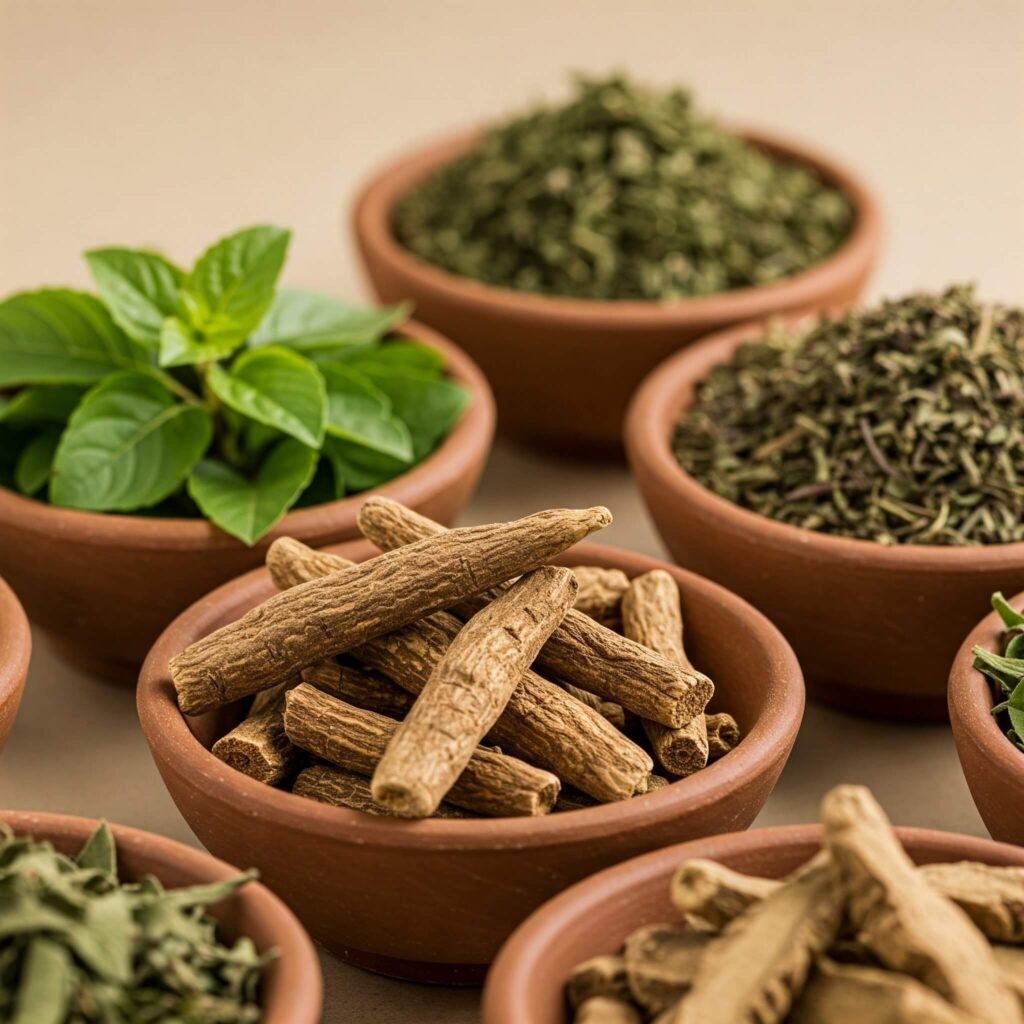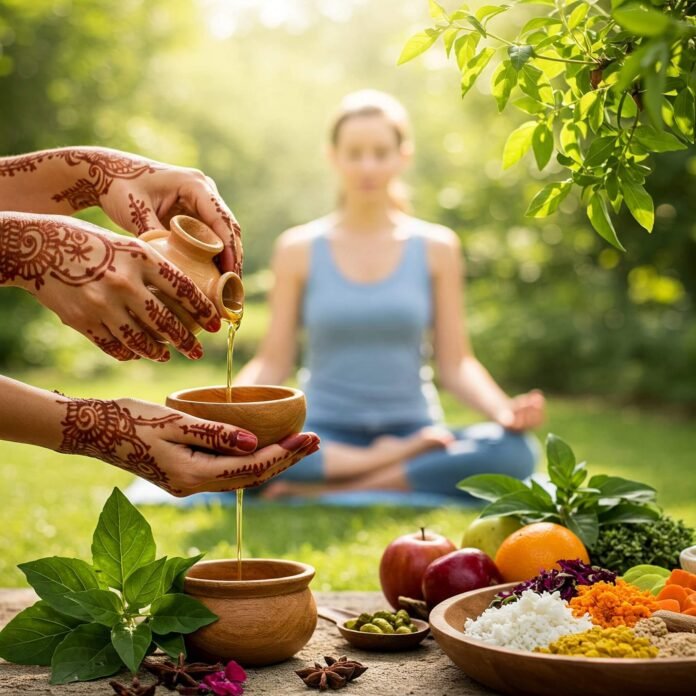Welcome to a journey towards tranquility! In today’s fast-paced world, stress has become an unwelcome companion for many. But what if there was a holistic approach, rooted in ancient wisdom, that could help you navigate these turbulent waters and find lasting peace? Welcome to the world of Ayurveda, the traditional Indian system of medicine, and its profound insights into stress reduction. This blog post will explore practical and time-tested Ayurvedic techniques to help you reclaim your inner calm and live a more balanced life.
Understanding Stress Through the Lens of Ayurveda
Ayurveda views each individual as a unique constitution, or dosha, comprising three primary energies: Vata, Pitta, and Kapha. Imbalances in these doshas, often exacerbated by lifestyle factors and mental unrest, are seen as the root cause of various ailments, including stress and anxiety. Understanding your dominant dosha can provide valuable clues about your susceptibility to stress and the most effective ways for stress reduction.
- Vata Imbalance: Often manifests as anxiety, restlessness, difficulty sleeping, and a feeling of being overwhelmed.
- Pitta Imbalance: Can lead to irritability, anger, frustration, and a tendency towards burnout.
- Kapha Imbalance: May result in lethargy, feelings of heaviness, emotional stagnation, and a tendency to overeat for comfort.

Powerful Ayurvedic Practices for Stress Reduction
Ayurveda offers a wealth of natural and holistic practices to effectively manage and reduce stress. These approaches work on multiple levels – physical, mental, and emotional – to restore balance and promote well-being.
Dietary Guidelines for Stress Reduction
What you eat significantly impacts your mental and emotional state. Ayurvedic principles emphasize consuming fresh, whole foods that are appropriate for your dominant dosha.
- Favor grounding and nourishing foods: Think warm, cooked grains, healthy fats, and easily digestible vegetables.
- Minimize processed foods, caffeine, and alcohol: These can aggravate imbalances and exacerbate stress.
- Eat mindfully: Pay attention to your hunger and fullness cues, and savor each bite. This promotes better digestion and reduces mental clutter associated with eating.
The Power of Ayurvedic Herbs for Stress Reduction
Nature provides potent allies in the fight against stress. Several Ayurvedic herbs have been traditionally used for their calming and adaptogenic properties.
- Ashwagandha: An adaptogen that helps the body cope with stress and improve resilience. It is known for its calming and rejuvenating effects. ([Outbound Reference Link to a reputable source on Ashwagandha, e.g., a peer-reviewed study or a recognized Ayurvedic organization])
- Brahmi (Bacopa Monnieri): Enhances cognitive function, reduces anxiety, and promotes relaxation. ([Outbound Reference Link to a reputable source on Brahmi])
- Tulsi (Holy Basil): An adaptogenic herb that helps regulate cortisol levels (the stress hormone) and promotes a sense of calm. ([Outbound Reference Link to a reputable source on Tulsi])
- Jatamansi: Known for its calming effect on the nervous system and its ability to promote sound sleep.
Important Note: Always consult with a qualified Ayurvedic practitioner before incorporating new herbs into your routine, especially if you have underlying health conditions or are 1 taking other medications.
Ayurvedic Lifestyle Practices for Stress Reduction
Beyond diet and herbs, daily routines and practices play a crucial role in managing stress according to Ayurveda.
- Abhyanga (Self-Massage): Regular self-massage with warm, dosha-specific oils helps to calm the nervous system, improve circulation, and promote relaxation.
- Yoga and Gentle Exercise: Specific yoga postures (asanas) and gentle forms of exercise help to release tension, improve energy flow, and calm the mind. Practices like Surya Namaskar (Sun Salutation) done at a slow pace can be beneficial.
- Pranayama (Breathwork): Conscious breathing exercises are powerful tools for calming the mind and reducing anxiety. Techniques like Nadi Shodhana (alternate nostril breathing) and Bhramari Pranayama (humming bee breath) are particularly effective for stress reduction.
- Meditation and Mindfulness: Regular meditation helps to quiet the mind, reduce mental chatter, and cultivate inner peace. Even a few minutes of daily mindfulness can make a significant difference in your stress levels.
- Maintaining a Regular Sleep Schedule: Ayurveda emphasizes the importance of a consistent sleep-wake cycle for overall well-being and stress management. Aim for 7-8 hours of quality sleep each night.

Creating a Personalized Ayurvedic Approach to Stress Reduction
The beauty of Ayurveda lies in its personalized approach. What works for one person may not work for another. It’s essential to understand your unique constitution and identify the root causes of your stress to tailor your stress reduction strategies effectively.
- Identify Your Dosha: Understanding your dominant dosha (Vata, Pitta, or Kapha) can provide insights into your inherent tendencies and imbalances. Online quizzes and consultations with Ayurvedic practitioners can help with this.
- Observe Your Body and Mind: Pay attention to the signs and symptoms of stress you experience. Are you feeling anxious, irritable, fatigued, or experiencing digestive issues?
- Consult an Ayurvedic Practitioner: A qualified practitioner can provide a personalized assessment, recommend dietary and lifestyle adjustments, and suggest appropriate herbal remedies for your specific needs.

Integrating Ayurveda for Long-Term Stress Reduction
Stress reduction through Ayurveda is not a quick fix but a journey towards holistic well-being. By consistently incorporating these ancient practices into your daily life, you can cultivate greater resilience, find inner peace, and navigate life’s challenges with more ease. Remember that consistency is key, and even small changes can have a profound impact over time. Embrace the wisdom of Ayurveda and embark on your path to a calmer, more balanced you.





































